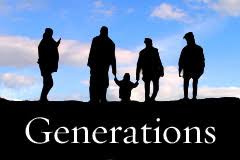By Cindy Woodsmall
Michelangelo
said, I saw the angel in the marble and carved until I set him
free.
While my
skills are nothing like his, I can relate to what he meant.
Stories
inside a writer’s mind and heart flow easily and are a lot of fun to ponder, but
carving a work onto the written page that is free of anything that isn’t “the
angel” is hard work, and we, as writers, have to figure out what we must do to
free that story.
I had
been pondering the story idea that’s now called As the Tide Comes In for
many years before my daughter-in-law Erin and I finally met at a coffee shop to
begin hammering out the outline.
I’d given
the story a working title of Soft Dusks and Noonday Fire, which was inspired
by a poem called The Marshes of Glynn, written in 1879 by Sydney Lanier.
I shared with
Erin what I knew of the characters and what I was looking for in a setting—a
small Southern town with a culture all its own and people to match.
Her eyes
lit up as she asked—have you considered Brunswick, where the poem was written
or its neighbor, St. Simon’s Island?
I had
thought of numerous small towns in Georgia that were connected to Sydney
Lanier, but I hadn’t considered a setting that far south. We discussed my story
ideas and all that St. Simon’s had to offer. She knew the island well. Her
parents had grown up in Brunswick, and she had spent her summers as a child
exploring St. Simon’s Island.
Despite
all she knew of it and the interviews she could line up with people who’d lived
there all of their lives, I knew I couldn’t write a story based on a place I hadn’t
been. I needed to breathe in the air, listen to the myriad
of sounds, and live a few days where my characters would.
Erin had
a solution for that—let’s go there next month!
It would
take time and money and effort…but we began making plans to go.
When I
went home from the coffee shop, I began an online search for a home to rent on
St. Simons. While I scoured the pages, story ideas and excitement for the novel
began to build. I made a reservation and began writing on the story. But
nothing I wrote worked for me, but I kept trying. I find it odd that as much as
the story works inside my head, getting the right beginning for it can take
numerous rounds of writing the first several chapters and chucking them. Rinse.
Repeat.
Soon we
were on the island, and we spent a week in a lovely old home that was
incredibly inspirational. Oh, how I long to share its unique beauty with you.
I had to
chuck every word I’d written thus far and start fresh…because being on the
island and staying in that intriguing old home had stirred my imagination in
ways I hadn’t expected.
By the
time our week was up and we were packing to return home, I knew we had all the
tools we needed to carve the angel out of the marble.
Without
seeing the place firsthand and without the wonderful interviews with those who
lived on the island, I couldn’t have seen the angel in the marble to even try
to carve him free.
What do
you need to do to see the angel in the marble and find the tools to set him
free?
Cindy Woodsmall is
the New York Times and CBA best-selling author of twenty-two works of
fiction. She’s best known for her Amish novels. She’s been featured in national
media outlets such as ABC’s Nightline and the Wall Street Journal.
Cindy has won numerous awards and has been a finalist for the prestigious
Christy, Rita, and Carol Awards. Cindy and her husband reside near the
foothills of the North Georgia Mountains. She can be found online at
cindywoodsmall.com Cindy’s co-author, Erin
Woodsmall is a writer, musician,
wife, and mom of the three. She has edited, brainstormed, and researched books
with Cindy for almost a decade. She has family roots in the Golden Isles of
Georgia, and spent time every summer of childhood on St. Simons Island.





























